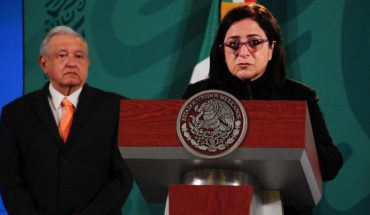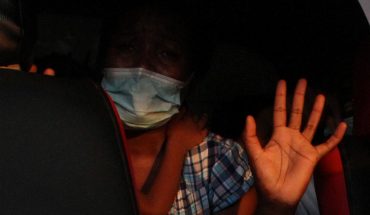The young activist has participated in the last two climate summits with the purpose of improving environmental conditions for the children of the future, was named ambassador of UN Women, one of the 100 women leaders in the ranking of El Mercurio and Mujeres Emprendedoras, and, in the second consecutive year, within the 100 Latinos most committed to climate action.
Julieta stands out for her eloquence and confidence, and firmly believes that we can and should all be activists of what moves us.
“To have access to a phone is to have access to a supercomputer. We must democratize access to information and see how each of us can get involved in this world. I’ve never liked the concept of “blaming the consumer,” blaming people for climate change. There are things in the daily routine that are important to change, however it is important to understand the successful model that governs us today. We must not fall into the concept of guilt and constant fighting, but to seek concrete and large-scale solutions, especially for those people who suffer the most and who are less represented in decision-making, “says the founder of Tremendas.
Being a girl and a young activist
—Adult-centrism contains an entire chapter in your book, how to combat it?
—It’s one thing to be young, and it’s another thing to be a girl and a young man, because machismo is also involved. The best thing is to break the stereotype, this caricature of young people against adults. Before talking about the implementation process, we have to work together so that the opinion of those involved is present from minute one. A young person will not have the same tools as an adult, living in a rural or urban area, being of African descent or part of an indigenous community, having a good socioeconomic situation or in a situation of vulnerability. They are details that make all the difference. It is the ability to understand that my reality is not the only one, and based on that diversity the discussions must be made.
—On September 4, the proposal for a New Constitution was rejected, what are your projections in this matter?
“Clearly we are in a very tense moment. The minute the rejection won, I sent an opinion column to different media, understanding that we need a Constitution that connects with the people, with the people most affected. I hope that the next constituent process will come as soon as possible to continue working for the defense of our ecosystem and for the feminist agenda, which has children in mind, but understanding that they are issues that are connected. Economic problems have to do with health crisis, social inequality and gender inequality. If we do not find that overlap of inequalities, we will continue to write a Constitution with isolated issues, which generates polarization.
—And how to continue advancing from youth?
—It is not only about the young vote, it is about getting an intersectional and multisectoral work, and for that all people have to see ourselves represented in the development of this Charter, beyond the political color.
—Speaking of politics and youth, seven months ago the government of President Boric debuted, a government that stands out for its young leadership, regarding the subject of your book, what balance do you make of these months? How do you evaluate performance in terms of environmental proposals, for example?
—I am glad that we are clear about how important a sustainable transition is. Sustainability has a social, environmental and economic pillar, and those three points always have to find a balance. For example, with the issue of decarbonization, if I am going to close a thermoelectric plant it must have a robust plan, related to infrastructure, to workers and thus prevent unemployment levels from increasing. There are so many nuances that are sometimes ignored, and it loses the value of what a sustainable and just transition means. The slogan of the ecological government becomes a reality.
—And in terms of the gender and childhood agenda?
In terms of children, beyond the clear position of the president who talks a lot about childhood and youth, he is also a particularly young president, his appearance at events such as Jóvenes Futuro gives a signal of importance, It is something that is seen throughout the cabinet: open to dialogue, interest in seeing, for example, issues of gender equity and childhood, marginalized childhood. The tools you have at your disposal not only define how you react but how you get out of them. What I hope most in this minute is that, in the same line of intersectionality, find meeting points between the portfolios of gender, education, environment, etc. Understand that they do not affect in isolation, so solutions should not work in isolation either. There is a good chance of finding an intersectionality.
On the international impact
—Today at the international level, as well as the national one, the gender and childhood agenda is gaining even more prominence, in what way can we contribute to struggles such as the Russian-Ukrainian War or the demonstrations in Iran?
I am a faithful believer that it is essential to understand crises as something personal, especially among women, because we are extremely affected by conflict zones. Everyone can and should be an activist, activism is based on raising your voice for what gives you grief, anger or anguish, not necessarily going out to march in the street, but using the tools you have at your disposal. That people, especially those who have more tools, make a difference. In countries like Chile, which are not a world power, we all have a role, the opportunity to make a difference and make a cause visible. And I repeat the words that hundreds of Iranian women have said: “If we disappear, be our voice.”
—In the same vein, Tremendas has had a lot of international reach, how is it possible to encourage activism in girls?
—Access to information and comprehensive education are paramount. One of the fundamental pillars in Tremendas, and that we want to continue implementing, are the “academies”. We work with the “Climate Academy”, with an environmental focus, and the “Atomic Academy”, with a STEM approach. These academies have an educational pillar and another that teaches you to carry out triple impact projects, which goes hand in hand with social innovation.
—What do you mean by triple impact projects?
—It is about understanding that I can carry out a project that not only has a personal but also a collective benefit. They are spaces that not only generate critical thinking, but also generate empathy. That not only generate an economic purpose, but the need to move forward without anyone being left behind. That goes hand in hand with the Tremendas pillar that has to do with resilience. Involving more girls to participate in discussions in Congress, constituent dialogues, participation, have a lot to contribute and we can make a difference.
I am not Juliet and literature by women
—In our country only 5 women have been awarded the National Prize for Literature, why do you think it is important to make writing visible by women?
—There is nothing more powerful than reading a woman written by a woman. Reading women, Woolf, Mistral, changes your life in many ways. We forget a structural inequality that has affected women throughout history. As Chimamanda Ngozi Adichie says in We should all be feminists, “culture doesn’t make people, people make culture.” Sometimes society needs breakdowns, turning the board and all the things that need to be changed.
—Speaking of inequality, books in our country are a privilege, how to bring literature closer to citizens, to children and adolescents and to young people?
—More must be invested in culture. The word investment may make people uncomfortable, but it is necessary. We are in a country that lacks access to culture, not only as something recreational, but as something necessary. Let access to culture not be a privilege. It is also the role of the State to open these spaces and encourage people to consume this type of content. What I intend with my book is to reach as many schools, open the spaces. I want to be a part of that work as well.
—Finally, why I’m not Juliet? What is the background to the title of your new book?
—I’m not Juliet it’s a reference to a conversation I had with Hillary Clinton in 2019 at the Generation Equality Forum, and one of the things I tried to explain to her on stage and backstage, is that I have never liked the concept to represent part of a generation, be it “girls”, “youth” or “women”, because I do not represent them all. I am not a child who grew up in a conflict zone, in a sacrifice zone, intoxicated by the water she drinks, in an extreme zone of vulnerability. I can empathize with those realities, but I do not live them, and since I do not live them, the least I can do with this privilege is to be a conductor cable. I am not just Juliet, I have to find a way for everyone, especially the girls who are on the front line of the crisis, to have their space at the table and their voice on stage.
Follow us on





